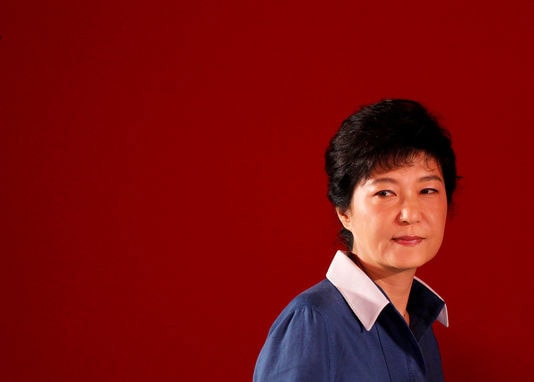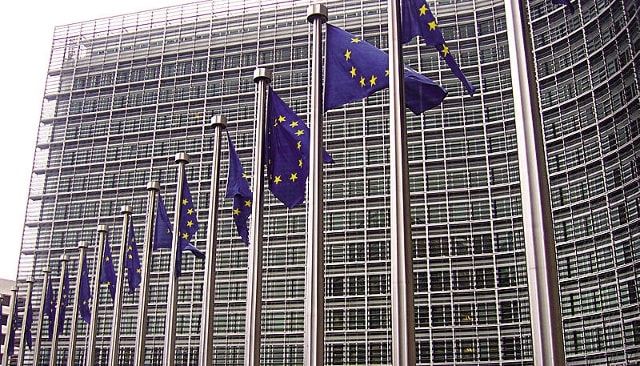Nightmares in politics
(Baonghean) - Last week could be considered a nightmare for South Korean President Park Geun-hye when she was removed from office, and it was also an unpleasant 25th birthday for the European Union with countless difficulties surrounding her.
South Korean President Suspended From Office
On Friday, December 9, the South Korean National Assembly voted to impeach President Park Geun-hye. The final result was that 234 out of 300 lawmakers voted in favor of the motion, meaning that Ms. Park will be suspended from office before the Constitutional Court considers the formal impeachment. Thousands of people gathered in front of the South Korean National Assembly building to celebrate this result.
A day before the vote, the opposition party released a document of more than 40 pages, accusing Ms. Park of corruption, abuse of power and, of course, the most recent scandal involving the President's close friend.
According to the opposition party, during the 40 years of close relationship between Ms. Park and her close friend Choi Soon-sil, the female President provided Ms. Choi with many confidential documents, allowed Ms. Choi to read many speeches in advance and involved in many relationships on a global scale.
 |
| Ms. Park Geun-hye has been temporarily suspended from the presidency pending the official decision of the Constitutional Court. Photo: Reuters |
All of this was done to benefit the funds the two ran. Ironically, the first source of information about the scandal was a friend who was once close to Ms. Choi, and then the two sides had an argument over the care of a pet dog.
On October 24, the worst nightmare in President Park Geun-hye’s political career began, and since then, not a single day has passed without new information about the scandal appearing on television. Park’s approval rating has continuously dropped to record lows, Korean people have protested demanding her resignation, the opposition party has launched attacks, and finally, what had to happen happened.
Of the 234 lawmakers who voted to impeach Park, 171 were from the opposition party, while the rest were from her own party. It was a difficult but inevitable decision, because if the impeachment motion was not passed, public anger would not subside, and even calls for the dissolution of the ruling party would be made.
This scenario is similar in many ways to the impeachment of President Roh Moo-hyung in 2004. Perhaps this is a historical irony because at that time, Ms. Park was the head of the opposition party, leading the campaign calling for Mr. Roh's impeachment.
The final decision rests with the Constitutional Court, which will announce the results after 180 days. Until then, Prime Minister Hwang Kyo-ah will temporarily rule the country. The presidential election, which was supposed to take place at the end of 2017, is likely to be held as early as the first quarter of the year.
Survey results show that Mr. Moon Jae-in, former Chairman of the Minjoo Party and former opponent of Ms. Park in the 2012 election, is the leading candidate for the President's seat.
EU celebrates 25 years of founding with many worries
On December 9, the European Union (EU) celebrated its 25th anniversary with the Maastricht Treaty, which is considered the pinnacle of European consensus. With 12 original member states now numbering 28, the EU's influence is growing, but the union is currently facing an unprecedented crisis.
One of the first difficulties was the financial crisis in Europe. In 1999, the introduction of the euro, a common currency, was considered stronger than any it had replaced. Under the control of the European Central Bank (ECB), the euro became a reserve currency to compete with the US dollar.
However, the eurozone crisis of 2009 forced several countries, including Greece and Spain, to seek bailouts, and many other members struggled to meet the union's budget rules.
 |
| The European Union celebrated its 25th anniversary on December 9. Photo: Internet |
In addition, the tough handling of the crisis by the continental powers has also made many countries that once wanted to join the bloc, such as Poland, Hungary, Bulgaria, etc., less interested. Many people and politicians in these countries assess that joining the eurozone is currently "full of risks and costs".
A political analyst also said that the EU was a bit complacent when it judged that there was no risk of the common currency collapsing, so it did not feel the need to continue reforming this currency.
The migrant crisis from the Middle East and Africa continues to be a headache for EU leaders. According to the International Organization for Migration (IMO), the number of migrants entering Europe by sea has increased by 60% compared to the same period last year despite the efforts of the bloc's leaders.
While the migration issue has not yet been resolved, the EU continues to face the rise of populism, which could affect the upcoming elections in Germany and France, as well as the shock of Britain leaving the union and most recently, the rejection of constitutional amendments by Italian voters.
According to experts, the referendum in Italy can be considered very important for the EU. Because Prime Minister Matteo Renzi is the only leader left in Europe who agrees with the bloc's leaders on the future vision of the EU when Germany and France are both busy with the upcoming election.
However, the defeat and resignation of Mr. Matteo Renzi on the night of December 4, local time, once again raised concerns that the EU would enter a new period of uncertainty. These concerns are entirely possible when opposition figures announced that they would hold a referendum on Italy's withdrawal from the common currency area.
If this happens, it will be a huge blow to the EU after Brexit. Some politicians even say that if they are not careful, the EU will fall apart. And indeed, if this happens, it will be a nightmare for all countries.
Chu Thanh
(According to Le Monde, Le Figaro)

